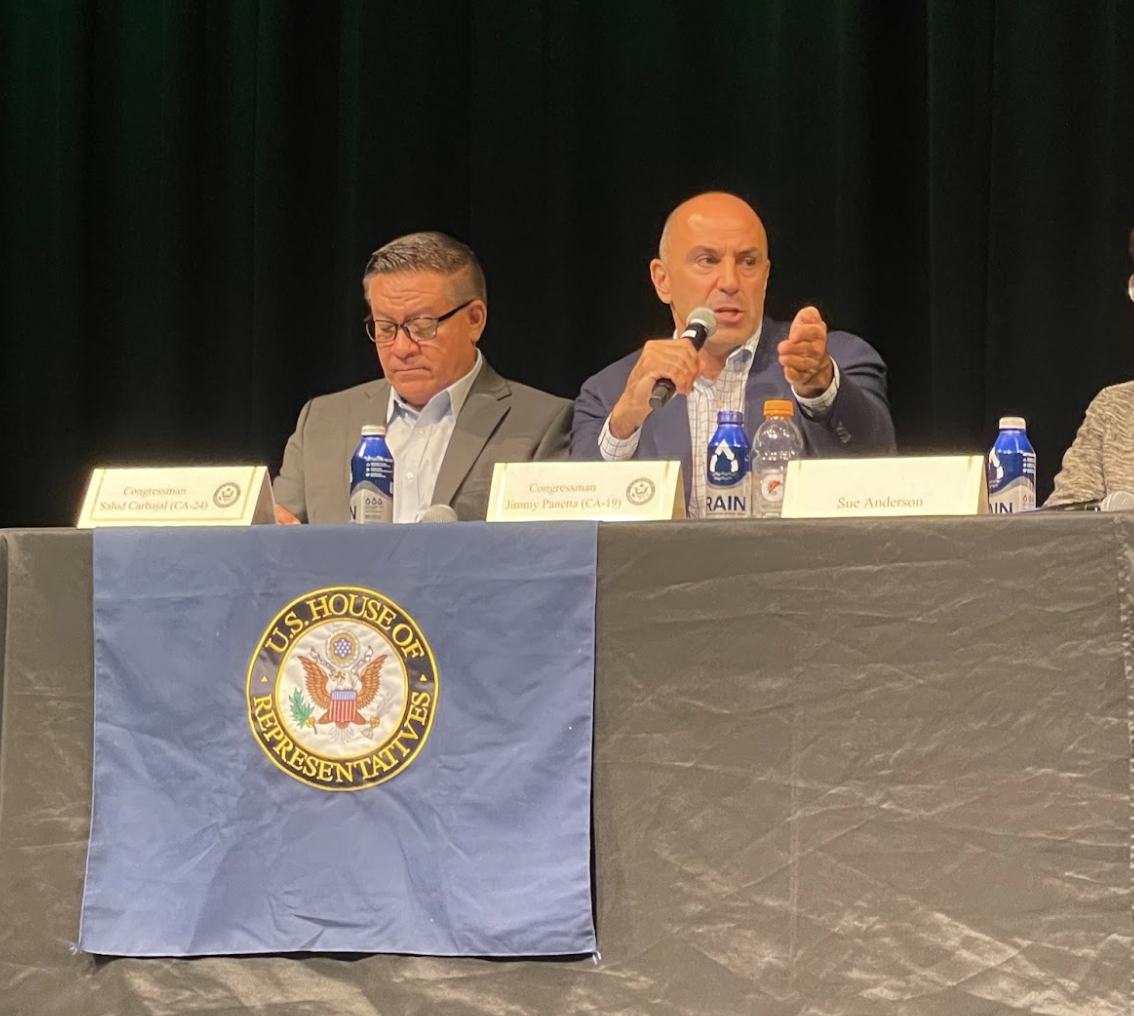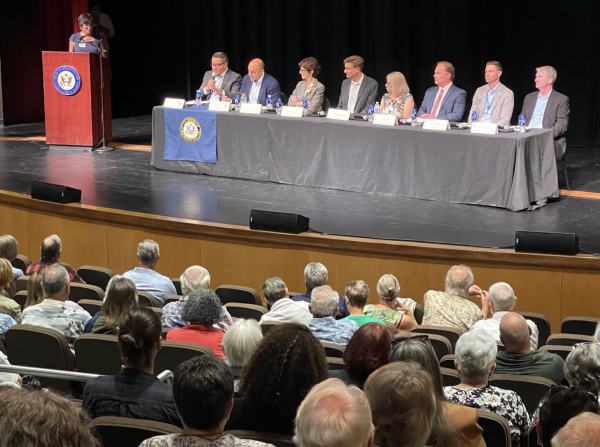
Michaela Mastache
California Congressmen Salud Carbajal (left) and Jimmy Panetta (right) engage in discussion with panelists at Cuesta College’s SLO Campus on Friday.
California State Congressmen Salud Carbajal, who represents the 24th district, and Jimmy Panetta, who represents the 19th district, held a public discussion and panel with local medical leaders to discuss Medicare access on the Central Coast on Friday morning at Cuesta College’s San Luis Obispo campus.
SLO County Supervisor Dawn Ortiz-Legg moderated the event and drew a large crowd of attendees that included SLO Mayor Erica Stewart, Morro Bay Mayor Carla Wixom, SLO Supervisors Bruce Gibson and Jimmy Pauly, and several other local politicians.
“I continue to hear from residents in SLO County and beyond about the difficulty accessing the care they need. Unfortunately, this issue isn’t new,” Carbajal said. “And now, with further cuts to Medicare and Medi-Cal, we know that health delivery is going to be even worse. And a large part of the problem is rooted in how Medicare reimburses physicians.”
Since 2001, Medicare physician payments and reimbursements have dropped 33% nationwide, despite the rise in costs and patient numbers, according to Carbajal.
“That’s unsustainable,” Carbajal said.
“Since 2001, the cost of running a practice has gone up by nearly 40%. Consumer prices overall are up 50%. But Medicare reimbursements to doctors, they’ve only gone up 10%. All things equal, that’s effectively a 33% pay cut for doctors,” Panetta said. “No wonder it’s hard to keep young physicians here on the Central Coast, raising their families and building practices for more experienced doctors to expand the services we so desperately need.”

President and CEO Of Dignity Health Sue Anderson said that Dignity Health, which runs three hospitals, many physicians offices, a nursing home and skilled home care services on the Central Coast, is looking at a potential cut of $20 million to their reimbursements.
Anderson said that these cuts will lead to hospitals getting smaller or closing, less services being available, and medical practices having a harder time recruiting new physicians and providers in an area where there are already too few medical professionals. Reports predict that by 2036 there will be a shortage of almost 80,000 medical providers in the United States.
A report published by the Congressional Budget Office finds that President Trump’s “Big Beautiful Bill’s” cuts to Medicaid will indirectly create more than $500 billion in cuts to Medicare. “Make no mistake, these cuts will make it harder for seniors to get the care they need and for healthcare providers to do their job.”
“The president’s reconciliation law slashes the provider tax and pushes more people into the ranks of the uninsured,” Panetta said. ”That means fewer resources for doctors and hospitals, longer emergency room wait times and even less stability for our health care system.”
“The Big Beautiful Bill really impacted hospitals more than anyone else as I look at it,” Anderson said. “At hospitals, we’re required by law to take care of everyone that walks in our doors, and they’re still going to have babies and they’re still going to work in our areas and somebody will be bearing the brunt of the cost of that and that’s going to be hospitals right now as it stands.”
Both Carbajal and Panetta supported the Resident Physician Shortage Reduction, which aims to expand the number of Medicare-supported residency positions eligible for graduate educational medical payments by 14,000 over the next seven years. It also aims to increase the healthcare professional workforce, with a focus on representation for rural, low-income and minority communities.
“I believe health care should be a human right for all, not a privilege for a few,” Carbajal said. And while our health care system is far from perfect, in Congress, I’ve worked on improving coverage and affordability alongside Congressman Panetta.”